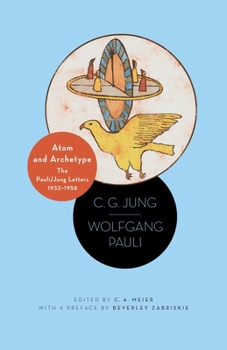Atom and Archetype: The Pauli/Jung Letters, 1932-1958 - Updated Edition
Select Format
Select Condition 
Book Overview
In 1932, world-renowned physicist Wolfgang Pauli had already done the work that would win him the 1945 Nobel Prize. He was also suffering after a series of troubling personal events. He was drinking heavily, quarrelling frequently, and experiencing powerful, disturbing dreams. Pauli turned to C. G. Jung for help, forging an extraordinary intellectual conjunction not just between a physicist and a psychologist but between physics and psychology. As...
Format:Paperback
Language:English
ISBN:069116147X
ISBN13:9780691161471
Release Date:July 2014
Publisher:Princeton University Press
Length:320 Pages
Weight:1.25 lbs.
Dimensions:0.8" x 6.2" x 9.4"
Customer Reviews
0 rating





